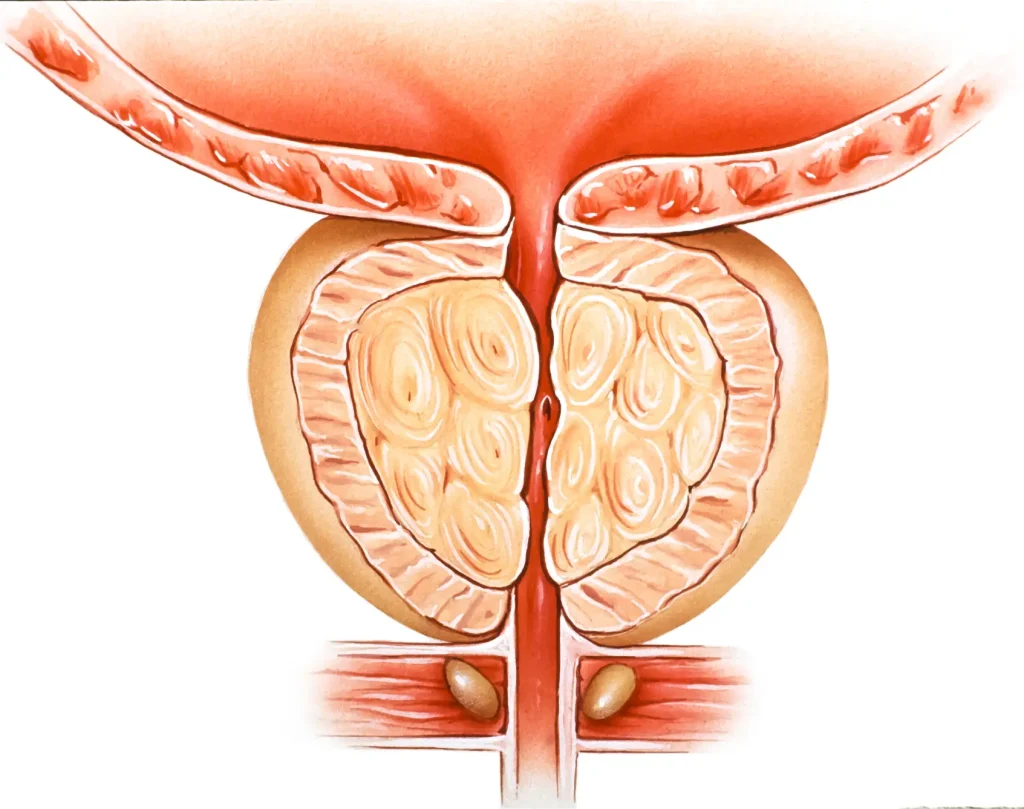Now Accepting New Patients. Contact Us Today To Schedule Your Visit.
Benign prostatic hyperplasia (BPH), commonly known as an enlarged prostate, is a prevalent condition in aging men. Approximately half of men aged 51 to 60 and up to 90 percent of men over 80 experience BPH. While BPH itself may not necessitate treatment, addressing symptoms can be beneficial. It is essential to note that BPH is non-cancerous and does not lead to cancer, although they can coexist. If you are experiencing symptoms, consulting with your doctor can provide insights into relief options.

While the normal size of the prostate in adult men is akin to a walnut or golf ball, it can grow larger, even exceeding the size of an orange. This enlargement may exert pressure on the urethra, the tube responsible for urine passage. Immediate medical attention is required if there is a complete inability to urinate or if kidney failure is a concern. However, symptoms like a weak urine stream or the need to strain during urination can often be monitored.
While the normal size of the prostate in adult men is akin to a walnut or golf ball, it can grow larger, even exceeding the size of an orange. This enlargement may exert pressure on the urethra, the tube responsible for urine passage. Immediate medical attention is required if there is a complete inability to urinate or if kidney failure is a concern. However, symptoms like a weak urine stream or the need to strain during urination can often be monitored.
The causes of BPH are not entirely clear, but hormonal changes as men age are believed to play a role.
When the prostate enlarges, it can affect or obstruct the bladder, leading to symptoms such as:
Various tests are employed for BPH diagnosis, including:
After surgical treatment, medication may be necessary to manage residual or new symptoms. Some men may require repeated treatment. In older men, symptom control may be possible until the end of life.
There is no guaranteed prevention for BPH. However, maintaining a healthy weight and adopting a balanced diet rich in fruits and vegetables may be beneficial. Excessive body fat could elevate hormone levels, stimulating prostate cell growth. Staying active also aids in weight management and hormone regulation.